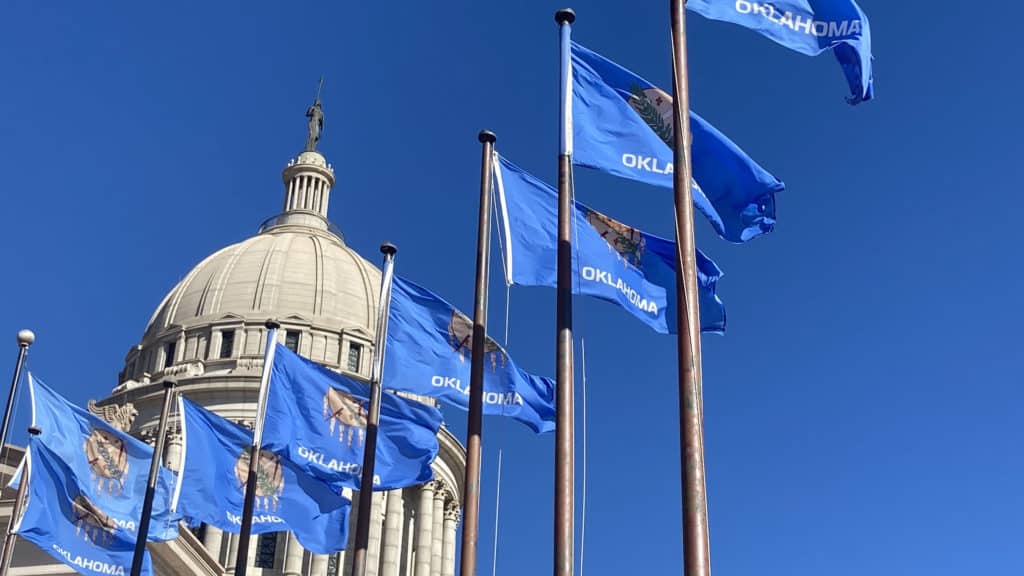House Floor comments continue to ring sour with northeast Oklahoma residentsBy KELLY BOSTIAN For the CCOF A longtime Tulsa biology teacher is giving some northeast Oklahoma legislators an “F” on the subject of Poultry Feeding Operations. She and others of the region believe the legislators should, and possibly do, know better. Misstatements about the mega-farm operations by representatives from the region sounded more like purposeful misinformation on the House Floor early this month, said Karen Harris, a retired teacher of nearly four decades and member of the All Souls Green Team and the Conservation Coalition of Oklahoma. She said the errors were telling as discussion continued on House Bill 1631, an Oklahoma Department of Agriculture, Food and Forestry requested bill designed to eliminate repetitive paperwork on nutrient management plans for existing operators and for the department. The bill, by Rep. David Hardin, R-Stilwell and Sen. Casey Murdock, R-Felt, actually has few detractors and passed through the House earlier this month and the Senate Agriculture and Wildlife Committee Monday. Each new Poultry Feeding Operation files such a plan with the Ag Department to lay out its procedures for collection and disposal of chicken waste and carcasses—be they destined for application at the poultry operation as fertilizer, on cropland or grazing lands across eastern Oklahoma or trucked out-of-state. Due to trucking costs, very little of the rich fertilizer source is applied on lands west of Interstate 35. The bill changes a requirement to re-draft an entire nutrient plan when changes are made so farmers can instead file a simple amendment. It also extends the date for a required update to six years. The bill passed the Senate Ag committee Monday with little discussion, but House Floor discussion of the general subject matter among Republican House leaders early in March caught Harris’s attention, sparked discussion among conservation groups, and continues to pepper social media talk among poultry industry critics. “First Representative Hardin told the House that everyone is given notice so neighbors know when a poultry mega-farm is going in and what they’re doing. That was completely false and disrespected hundreds of residents of Delaware County who were rudely surprised and their lives turned upside down the past three years,” Harris said. “Lack of notification led to two different lawsuits against the state that were heard in Delaware County District Court so he surely was aware.”
“Common sense tells you that is an impossible number. This is just indicative of the age we are in, where people say things that support what they think whether there is any logic to support it or not because there is no one there to challenge it.”
Emails and phone messages from the Conservation Coalition of Oklahoma Foundation to Reps. Hardin and West were not returned during Spring Break or last week. The numbers cited by West and Hardin are the opposite of what official records show. According to past Agriculture poultry reports and records for 2019 and 2020 obtained through an open records request by the Conservation Coalition of Oklahoma Foundation nearly 80 percent of chicken litter produced in Oklahoma stays in Oklahoma. At least 13 percent is applied on Poultry Feeding Operation lands and only about 20 percent is exported out of state. Fiscal year 2019 spreadsheets from the department show Oklahoma PFOs produced nearly 200,000 tons of poultry littler. Of that amount about roughly 26,000 tons was applied on PFOs. Another 129,000 tons was dispersed across the eastern half of the state and roughly 45,000 tons went to neighboring states—primarily Missouri and Kansas and Texas. Another unfortunate exchange on the matter raised by Rep. Denise Brewer, D-Tulsa, had her quizzing Hardin repeatedly about “requiring a meal plan” for poultry operations as she referenced nutrient management plans. The plans do not address feeding or meals but are for documentation of the handling of chicken waste and carcasses. “These are important issues for the farmers and for hundreds of people in Northeast Oklahoma whose lives are seriously impacted by these huge farms,” Harris said. “There is confusion as it is, and it was beyond disheartening to see that kind of gross misinformation shared on the House Floor.” Kelly Bostian is a conservation communications professional working with the Conservation Coalition of Oklahoma Foundation, a 501c3 non-profit dedicated to education and outreach on conservation issues facing Oklahomans. To support Kelly’s work please consider making a tax-deductible donation at https://www.oklahomaconservation.org
0 Comments
Leave a Reply. |
Archives
May 2024
Categories
All
|
Conservation Coalition of Oklahoma
P.O. Box 2751
Oklahoma City, OK 73101
[email protected]



